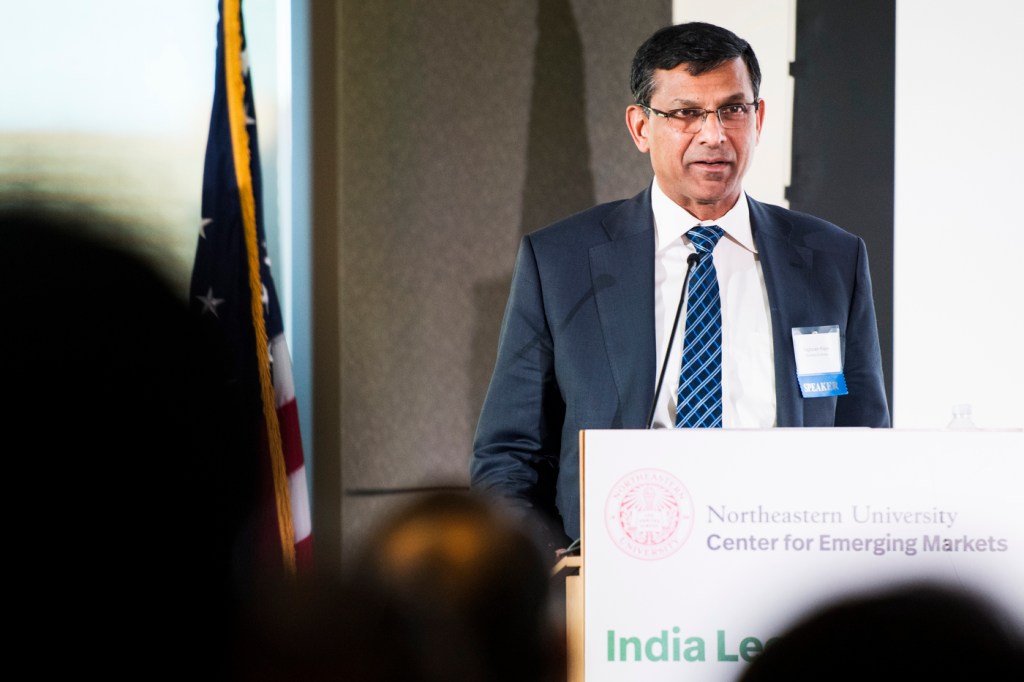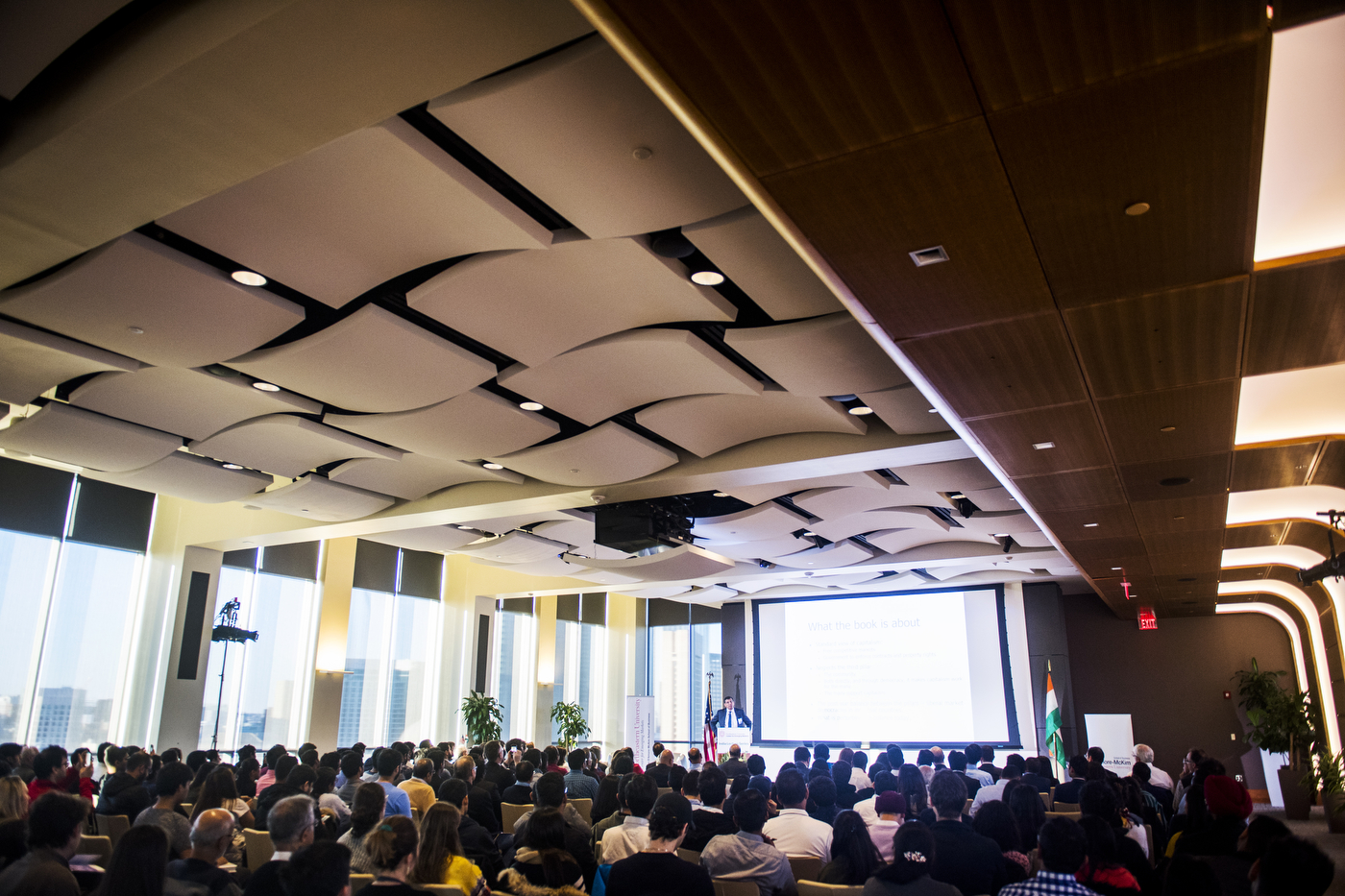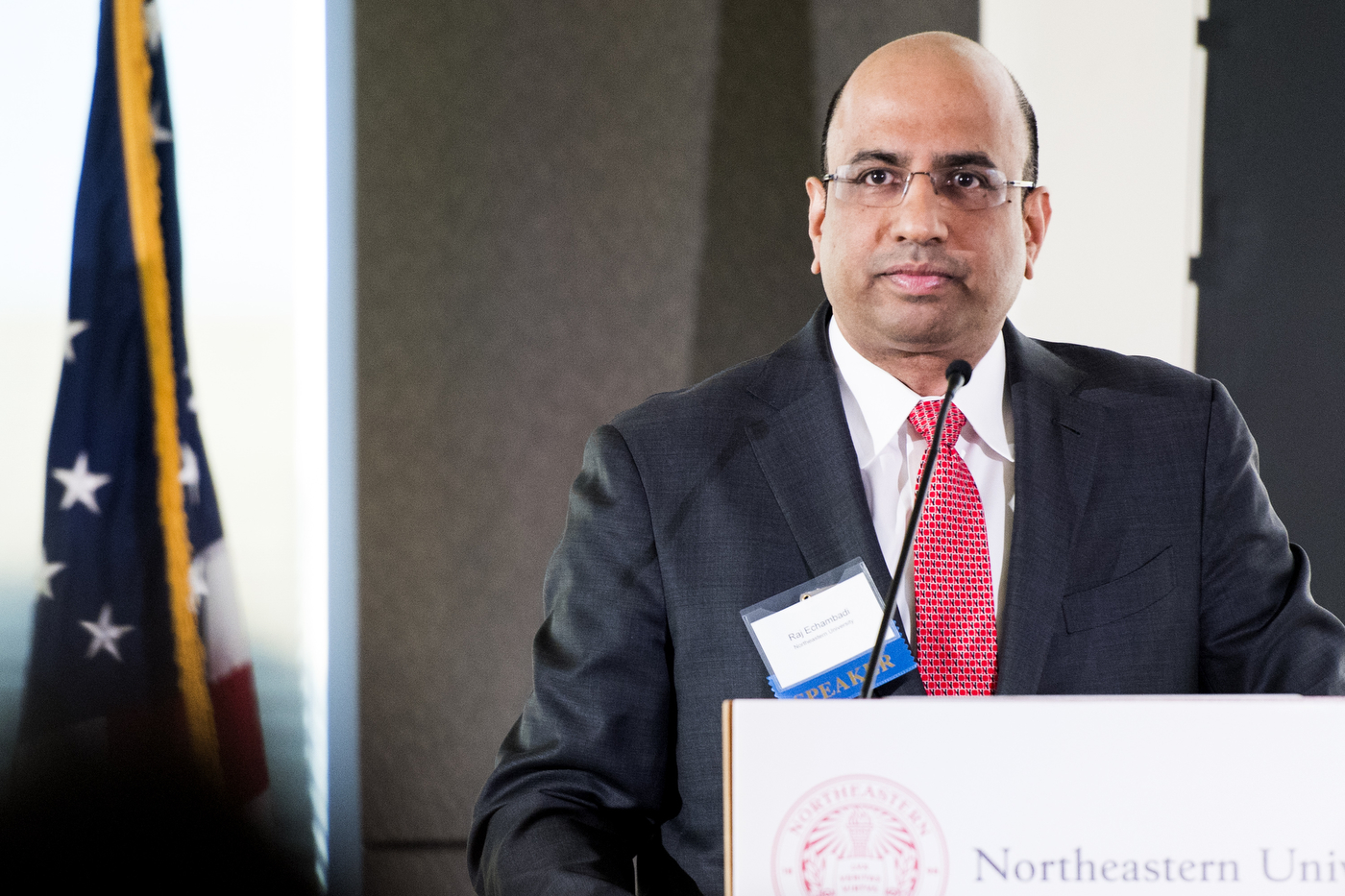Economist Raghuram Rajan, author of The Third Pillar, calls for empowering local communities to restore societal balance amid tech revolution

Raghuram Rajan, an economist at the University of Chicago and former governor of the Reserve Bank of India, says that the technological revolution of the past two decades has thrown the three pillars that hold up society—government, the markets, and community—out of balance.
As these three pillars had been working in harmony since World War II, so too had liberal market democracy, Rajan says. Calamities such as the Great Depression can bring disruption. But so can technological revolutions, such as the one we’re living in. What’s happening now is that as the pillars of government and the markets have been strengthened, in many ways the community pillar has been left behind.

Photo by Adam Glanzman/Northeastern University
“What worked in the West for much of the post-war period seems to be breaking down,” Rajan told those in attendance at the 5th India Lecture, held Monday by the Center for Emerging Markets, a research center within the D’Amore-McKim School of Business at Northeastern.
In Rajan’s new book, The Third Pillar: How Markets and the State Leave the Community Behind, which was released earlier this year, he explores the historical connections between these three pillars—and examines the current state of imbalance. He says that imbalance can lead to unrest and widespread anger in the form of populism, when people don’t see the capitalist system working for them anymore.
Rajan’s solution is a return to strengthening and empowering local communities to make more decisions about how globalization and the technological revolution affect them. He doesn’t argue for a radical change, but rather to reimagine the balance between the three pillars.
“One of the things we can do is pull power back from international to national, and from the national to the local,” Rajan told his audience Monday night in East Village on Northeastern’s Boston campus.

Dean Raj Echambadi introduces Raghuram Rajan, former governor of the Reserve Bank of India, during the Center for Emerging Markets’ India Lecture Series. Photo by Adam Glanzman/Northeastern University
“At the national level, pulling back sovereignty to, say, the European Union or to international agreements doesn’t necessarily mean that you are hostile to international trade and international investment firms, said Rajan, who previously served as chief economist and director of research at the International Monetary Fund. “It just means the ability you want to take a different view on some of these issues.”
Raising barriers to international trade and immigration, he said, are short-sighted solutions to global problems.
In introductory remarks, Raj Echambadi, the inaugural Dunton Family Dean of the D’Amore-McKim School of Business, drew parallels between Rajan’s message about technology and Northeastern’s global vision. Echambadi said that the university’s academic plan, Northeastern 2025, focuses on building networks for lifelong learning, and preparing students to be agile learners and thinkers in the age of artificial intelligence.
“It has provided an opportunity for Northeastern to lead a revolution in higher education,” Echambadi said of the onset of artificial intelligence.
For media inquiries, please contact media@northeastern.edu.





